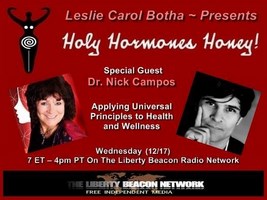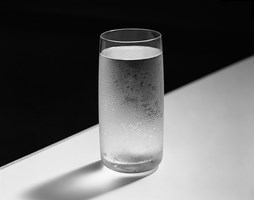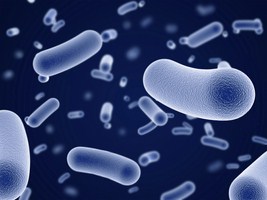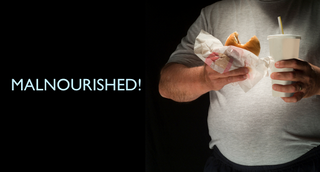 A big fat duuuuuuuhhhhhh in the world of health today, as a new study discloses that half of all cardiovascular deaths are due to preventable factors. Why duh? I have been reporting on this phenomenon since I wrote my quintessential health manual, The Six Keys To Optimal Health, a decade ago. Okay, okay, to be fair, many of you have not read it; and I am certain many of you do not peruse the health news in the same manner I do. However, saying that, we all know the risk factors for cardiac events, so why are people not taking heed?
A big fat duuuuuuuhhhhhh in the world of health today, as a new study discloses that half of all cardiovascular deaths are due to preventable factors. Why duh? I have been reporting on this phenomenon since I wrote my quintessential health manual, The Six Keys To Optimal Health, a decade ago. Okay, okay, to be fair, many of you have not read it; and I am certain many of you do not peruse the health news in the same manner I do. However, saying that, we all know the risk factors for cardiac events, so why are people not taking heed?
The study, published today in the Annals of Internal Medicine online, looked at data from the BRFSS (Behavioral Risk Factor Surveillance System) 2009–2010 of over 500,000 people, ages 45 to 79, to asses risk factors associated with cardiovascular deaths (heart attacks, heart failure, etc). The five primary risk factors were: smoking, obesity, diabetes, high cholesterol, and high blood pressure—and all are preventable. Complete elimination of each of these risk factors would reduce cardiovascular deaths—the leading cause of death in the U.S.—by 54% in men, and nearly 50% in women.
 Smoking and high blood pressure led to the highest proportion of preventable deaths, and nearly 80 percent of people reported exposure to at least one of the five risk factors. Despite these risks being preventable, if every state was brought to the level of the best state, only ten percent of the deaths would be prevented. Get it? What this means is that Americans, in general, practice risky cardiovascular behaviors. Yes, eighty percent of the country either smokes, is obese, has high blood pressure, high cholesterol or diabetes. And many have several, and some have all! Do you get it? That’s freakin’ abysmal. And we wonder why health is so poor in the U.S. Can’t blame healthcare (sickcare) for this one.
Smoking and high blood pressure led to the highest proportion of preventable deaths, and nearly 80 percent of people reported exposure to at least one of the five risk factors. Despite these risks being preventable, if every state was brought to the level of the best state, only ten percent of the deaths would be prevented. Get it? What this means is that Americans, in general, practice risky cardiovascular behaviors. Yes, eighty percent of the country either smokes, is obese, has high blood pressure, high cholesterol or diabetes. And many have several, and some have all! Do you get it? That’s freakin’ abysmal. And we wonder why health is so poor in the U.S. Can’t blame healthcare (sickcare) for this one.
Like I said, we all know the risks, so why do we fail to avoid them? Ummmm…I can take a guess…let’s see: because American citizens have become so spoiled by ease and comfort that we believe we are entitled to live as we please, and then be “saved” by medicine. That’s precisely what universal health care was all about – our inalienable right to have our preventable conditions treated – and this study proves it. Preventable! I know it is hard to hear, and it certainly doesn’t endear me to the masses when I say it, but it’s the truth and we both know it.
So let’s go over it again:
 Diet: whole, natural foods prepared mostly at home. Eat out only sometimes (like once a month…ok, fine, once a week)
Diet: whole, natural foods prepared mostly at home. Eat out only sometimes (like once a month…ok, fine, once a week)- Exercise: 3-4 times per week; make-you-sweat type of work out. Commit to it, especially if your professional work is in front of a computer
- Sleep: get plenty; try not to burn candle at both ends too often
- Sun: a must! Get out in the sun every day when it’s visible; get a lamp when it isn’t
- Water: drink plenty or suffer the consequences. You are never too young to succumb to insufficient water levels – don’t mess around with this one
- Get bodywork: chiropractic, massage, stretching, sex (yes sex) – all essential to neuromuscular and endocrine (via healthy sexual interactions) health
- Balance emotional charges: contact me
- Minimize toxins: the less booze, cigs, Oxycontin, junk food, soda and pharmaceuticals (the crap you get from your MD; the stuff you feel entitled too…yes poisons) the better
- Minimize sugar: c’mon folks, diabetes is just way too high
I know we are all going to die, but nobody reading this wants it to be them, not prematurely anyway. So do the right stuff and I promise you will get more out of life, and more life to get things out of. I’ll continue to send out tough love via health information, facts, and no nonsense interpretations meant to wake…you…up. Hope you are listening.























